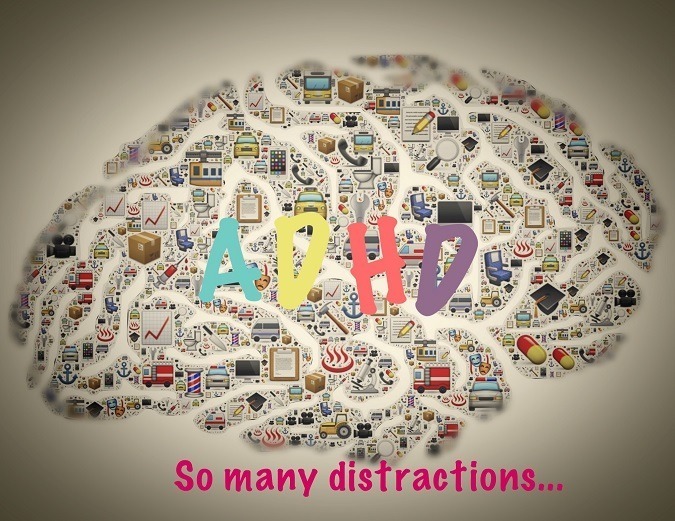Study: Self-guided internet-delivered treatment can significantly reduce ADHD symptoms among adults
 Although ADHD was originally considered to be a disorder of childhood, it has been clear for years that it also impacts adults. At least 60% of children diagnosed with ADHD struggle with symptoms into adulthood and the estimated prevalence of ADHD in adults is between 4 and 5%.
Although ADHD was originally considered to be a disorder of childhood, it has been clear for years that it also impacts adults. At least 60% of children diagnosed with ADHD struggle with symptoms into adulthood and the estimated prevalence of ADHD in adults is between 4 and 5%.
As with children and teens, medication treatment is extensively used to treat ADHD in adults. Although medication is a core treatment for adult ADHD, and helps many individuals, many continue to experience impairment and some experience adverse effects that preclude ongoing medication treatment.
Although psychological treatments for adult ADHD — either in combination with or as an alternative to medication — are recommended, they are not broadly available in routine clinical practice. As a result, relatively few adults are offered psychological-based ADHD treatment after being diagnosed.
Making evidence-based psychological treatment for adult ADHD widely available would thus be extremely helpful. This issue was the focus of a recently published paper [Kenter et al., (2023). A self-guided internet-delivered intervention for adults with ADHD: Results from a randomized controlled trial, over at Internet Interventions.] The study was conducted in Norway.
Study design:
Participants were 120 adults (mean age ~41; 80% female) with self-reported ADHD diagnosis. They were recruited via information posted on social media pages from the national ADHD association. This was thus a ‘convenience’ sample as opposed to a sample that was truly representative of Norwegian adults with ADHD.
Seventy-two percent were taking ADHD medication and remained on it during the study. They were randomly assigned to either a self-guided internet delivered intervention (MyADHD, described below) or to the control condition which provided online psychoeducation about ADHD.
Participants rated their ADHD symptoms using the Adult ADHD Self-Rating Scale (ASRS) before treatment began, immediately following the 7‑week treatment, and 3 months after treatment ended. Participants also completed the Adult ADHD Quality of Life Measure and a perceived stress scale; measures of user satisfaction and adherence were obtained.
Intervention and Control:
The intervention was a short-term, structured, self-guided intervention that participants accessed via the internet. It included 7 modules that participants were instructed to complete weekly.
The modules focused on goal setting, awareness training, inhibition training, emotion regulation, planning and organizing daily life, self-acceptance, and making a plan for the future. The main goals were to help participants attain improved functioning in daily living, provide strategies for stress reduction, reduce inattention, and enhance participants’ quality of life.
Each module included text, audio, and video materials instructing participants in the use of specific techniques. Modules also included case vignettes and videos designed to help participants make connections between the material being taught and their own lived experience. Multiple modules included homework that had participants practice new skills in everyday situations and to track their success.
On average, about 5 of the 7 modules were completed by participants.
Participants in the control group completed an online psychoeducation program on adult ADHD in which they learned about ADHD symptoms and management strategies. Specific topics covered included Understanding ADHD, Behavior Management, Problem Solving, Emotion Regulation, and Self-Acceptance.
The overarching goal was to help participants develop a deeper understanding of ADHD, how it impacts them, and how they can cope more effectively with the challenges that ADHD creates. Although it covered similar content to the MyADHD intervention, it did not include the practice exercises, videos, and audio files. It was thus likely to be experienced as less engaging and action oriented.
Results:
Adults in the intervention group reported significantly greater reductions in ADHD symptoms following treatment than control participants; these differences were maintained at the 3‑month follow-up. The magnitude of the group difference was in the medium to large range.
Forty-five percent of intervention participants compared to only 10.8% of control participants reported a decline in symptoms that was large enough to be considered clinically meaningful. At the 3‑month follow-up, the percent of intervention participants reporting a clinically meaningful reduction in ADHD symptoms had increased to 58%; for control participants, the figure had increased to 15.2%.
Further, no adults in the intervention group showed a meaningful increase in symptoms from baseline to follow-up while this happened for over 19% of adults in the control group.
Quality of life: Adults in the intervention group reported a higher quality of life immediately after treatment; although this was no longer evident at the 3‑month follow-up. Control participants indicated no comparable gain in their quality of life.
Stress: No significant effects for self-reported stress were found.
Treatment satisfaction: Nearly 80% of intervention participants reported that they were either satisfied or very satisfied with the self-guided intervention. Over 88% indicated that they would recommend the intervention to a friend.
Summary and implications:
Results of this study provide initial evidence that a self-guided, internet-delivered intervention for adults with ADHD can be effective. Three months following the intervention, nearly 60% of adults receiving the intervention reported a reduction in core ADHD symptoms that was large enough to be considered clinically meaningful. This is an encouraging finding.
On the other hand, while quality of life gains were reported immediately after treatment ended, they were no longer evident 3 months later. Perhaps these gains would have persisted in the adults remained engaged in the intervention thru booster sessions, but that is a question for subsequent research.
While results from this study are encouraging overall, there are several limitations to note. Most importantly, all outcome data came from self-reports. The study would have been strengthened considerably if reports from partners, friends, etc. had also been obtained and showed similar findings.
It is also the case that all adults self-initiated participation in the study by responding to information posted on the web. As such, they were not necessarily a representative sample of adults with ADHD, and the extent to which results obtained here would generalize to a truly representative sample is unclear.
While addressing these concerns in future work would be important, these are exciting results because this intervention could easily be made widely available, and thus address a significant need in the field. There would also not seem to be any risks associated with this treatment and it can be used in conjunction with medication as was the case for many participants in the study.

– Dr. David Rabiner is a child clinical psychologist and Director of Undergraduate Studies in the Department of Psychology and Neuroscience at Duke University. He publishes the Attention Research Update, an online newsletter that helps parents, professionals, and educators keep up with the latest research on ADHD.
The Study in Context:
- Does ADHD treatment enable long-term academic success? (Yes, especially when pharmacological and non-pharma treatments are combined)
- Survey of 2500 families finds what ADHD treatments seem to work/ not work as applied in the real world
- What are cognitive abilities and how to boost them?


